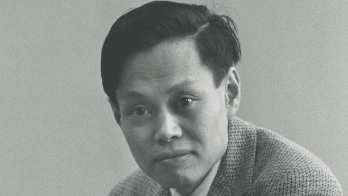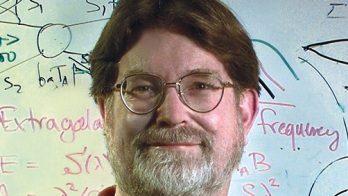
Experimental particle physicist Gaspar Barreira, co-founder of the Portuguese Laboratory for Instrumentation and Experimental Particle Physics (LIP), passed away on 1 June. He was the Portuguese delegate to the CERN Council and to the SESAME Council, and was a strong proponent of international cooperation.
Gaspar’s life proceeded in cycles, each lived intensely with great energy and focus. He had a vision to foster progress, to change the world here and now. Each time, despite arriving as an outsider, he was able to make great impact thanks to his intelligence and capability to transmit enthusiasm. He always chose grand objectives: let’s build something that doesn’t exist at all in the country; let’s do something that was never done before. He was not afraid of dreaming, nor of obstacles.
Born in Braga, in the north of Portugal, Gaspar arrived in Lisbon at the age of 18 to study physics and mathematics. He fought against the dictatorship of Salazar, which gagged Portugal for more than 40 years until the Carnation Revolution of 25 April 1974, and was imprisoned more than once. In the early 1970s he taught himself electronics, and soon found himself at the Nuclear Physics Centre in Lisbon, saving the day for many colleagues with his ability to fix the scarce equipment or assemble non-existing parts. He also entered into pioneering collaborations with archaeologists to date ancient artefacts – a path that in 1980 led him to the International Centre for Theoretical Physics in Trieste, Italy, where he soon become director of the microprocessors laboratory.
In 1985 Gaspar retuned to Portugal to get involved in the county’s accession to CERN, founding LIP with José Mariano Gago and Armando Policarpo, and building LIP’s instrumentation division. NA38 at the SPS was the first experiment in which LIP participated as an institution. He greatly contributed to establish LIP as a reference laboratory in particle and astroparticle physics, instrumentation, technology and computing.
Gaspar was a strong believer in CERN and international cooperation. He had a fundamental role in bringing Portugal into the DELPHI experiment at LEP, and was a strong supporter of the LHC from the early days. He was a strong advocate of distributed computing, and did not spare efforts to have Portugal and LIP in the main projects in this area, at CERN and at a European level. Gaspar was responsible for the creation of the Portuguese Tier-2 in the CERN Worldwide LHC Computing Grid, and was active in several related initiatives.
From the turn of the century, Gaspar was fully involved in science policy. He was the Portuguese representative to a variety of international organisations and boards, and coordinated the Portuguese participation in the Alpha Magnetic Spectrometer for its shuttle flight in 1998. Gaspar was always particularly concerned with knowledge-transfer to society. He co-coordinated the training programmes for young Portuguese engineers at CERN, ESA and ESO, and the creation of the Portuguese language teachers programme.
Before and after the revolution of 1974, Gaspar worked towards the construction of a world where knowledge, freedom and rationality were decisive. We have lost a great friend of CERN, LIP and physics, an excellent scientist and a truly unique personality. Though departed, Gaspar leaves us an immense legacy of vision, endurance and resilience. His last big project, the installation in Portugal of a treatment and research centre for cancer therapy with protons, is not yet accomplished. For this we will strive.








